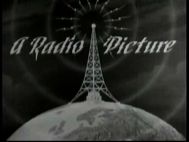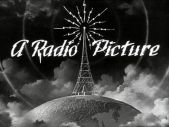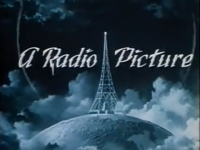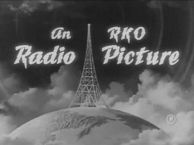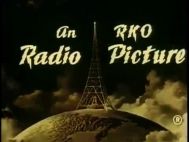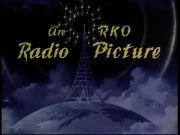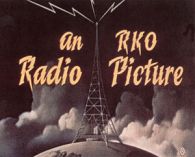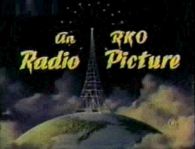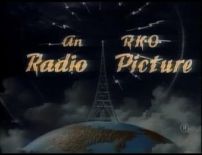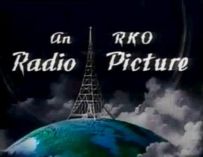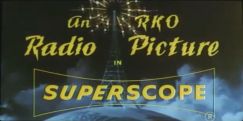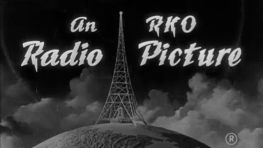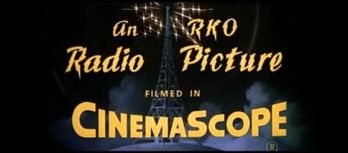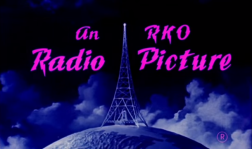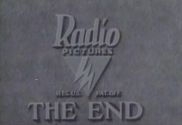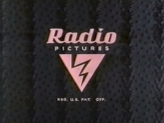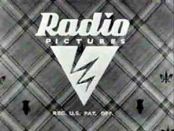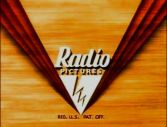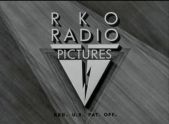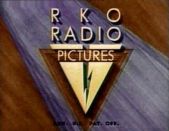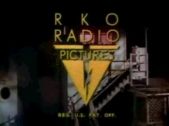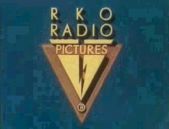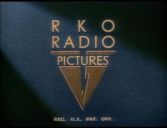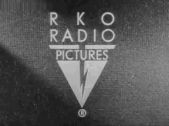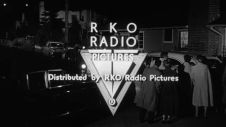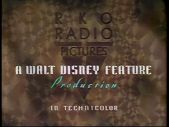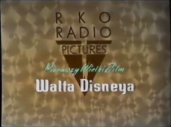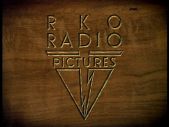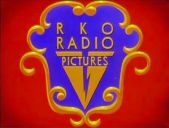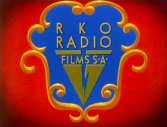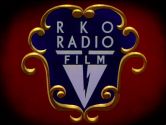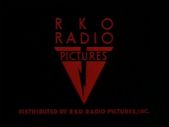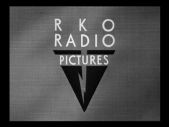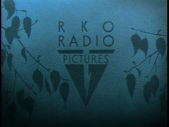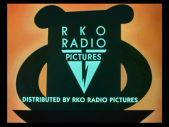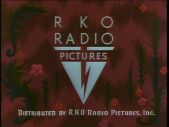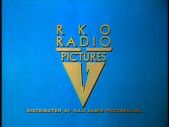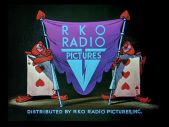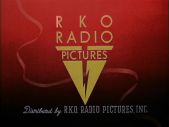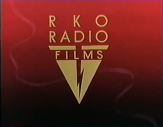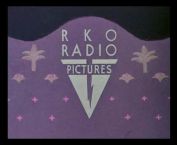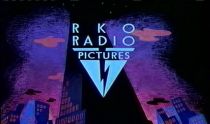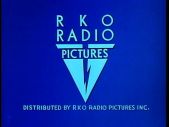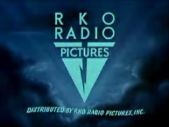RKO Pictures
Jump to navigation
Jump to search
Logo descriptions by Nicholas Aczel, Sean Beard, Logophile, OZ_Paramount87, indycar, and Vahan Nisanian
Logo captures by Eric S., indycar, Sagan Blob, naxo-olé and others
Video captures courtesy of Eric S., DudeThatLogo, Peakpasha, simblos, LogoLibraryinc, MyNewBryceIsHere2012, JeiceTheWarrior, mcydodge919 and Kiernan Howell-MacKinley
RKO Radio Pictures
Background: RKO Radio Pictures was originally founded by RCA to promote their RCA Photophone sound system. The initials in the company name stand for "Radio Keith Orpheum", reflecting the joint venture of RCA, the Keith Orpheum theater circuit, and the Film Booking Office of Joseph P. Kennedy, the father of the 35th U.S. President, John F. Kennedy. Howard Hughes would purchase the studio in 1948 and sell off the studio to the General Tire and Rubber Company in 1955. The rights to the majority of the in-house RKO Radio Pictures films are owned by the current RKO Pictures with distribution rights owned and/or licensed to Warner Bros. Pictures via Turner Entertainment Co. While Walt Disney Pictures owns the rights to their own productions and films produced by Selznick International Pictures (the latter via ABC Motion Pictures), the Samuel Goldwyn, Jr. family trust owns the rights to Samuel Goldwyn Productions films with domestic distribution rights licensed to Warner Bros. and international rights to Miramax Films, Paramount Pictures owns It's a Wonderful Life via Republic Pictures and Universal Studios owns films produced by Hughes.
1st Logo (Opening Logo)
(July 30, 1929-March 13, 1959)
Nicknames: "The Transmitter", "The Globe and Tower" (according to the RKO Pictures, LLC website <a class="external" href="http://www.rko.com/" rel="nofollow" target="_blank">http://www.rko.com</a>), "Radio Tower"
Logo: On a cloudy background we see a radio tower situated on top of a rotating Earth globe. The radio tower is sending out signals illustrated by lightning bolts and sound waves coming from its transmitter. The text "A Radio Picture" (1929 to 1937) or "An RKO Radio Picture" (1932 to 1959) writes itself on the logo in a "thunderbolt" font.
Trivia:
Variants:
FX/SFX: The rotating Earth globe, the lightning bolts and the sound waves are all primitive 1920s visual effects. However, they were advanced in their time.
Music/Sounds: A series of "Morse code" beeps. In some cases, the Morse code is replaced by the movie's opening music (from mid-1940s, the morse code was completely replaced and dropped out), and in other cases, the morse code and the movie's opening music play together.
Logo captures by Eric S., indycar, Sagan Blob, naxo-olé and others
Video captures courtesy of Eric S., DudeThatLogo, Peakpasha, simblos, LogoLibraryinc, MyNewBryceIsHere2012, JeiceTheWarrior, mcydodge919 and Kiernan Howell-MacKinley
RKO Radio Pictures
Background: RKO Radio Pictures was originally founded by RCA to promote their RCA Photophone sound system. The initials in the company name stand for "Radio Keith Orpheum", reflecting the joint venture of RCA, the Keith Orpheum theater circuit, and the Film Booking Office of Joseph P. Kennedy, the father of the 35th U.S. President, John F. Kennedy. Howard Hughes would purchase the studio in 1948 and sell off the studio to the General Tire and Rubber Company in 1955. The rights to the majority of the in-house RKO Radio Pictures films are owned by the current RKO Pictures with distribution rights owned and/or licensed to Warner Bros. Pictures via Turner Entertainment Co. While Walt Disney Pictures owns the rights to their own productions and films produced by Selznick International Pictures (the latter via ABC Motion Pictures), the Samuel Goldwyn, Jr. family trust owns the rights to Samuel Goldwyn Productions films with domestic distribution rights licensed to Warner Bros. and international rights to Miramax Films, Paramount Pictures owns It's a Wonderful Life via Republic Pictures and Universal Studios owns films produced by Hughes.
1st Logo (Opening Logo)
(July 30, 1929-March 13, 1959)
<iframe frameborder="0" height="150" src="http://wikifoundrytools.com/wiki/closinglogos/widget/unknown/f0edc59feb4b5380537cc556a4c8821f54ce4149" width="199"></iframe><iframe frameborder="0" height="150" src="http://wikifoundrytools.com/wiki/closinglogos/widget/unknown/4609e16ce91d3ff276cc90c22a4178ce6592f0a8" width="199"></iframe><iframe frameborder="0" height="150" src="http://wikifoundrytools.com/wiki/closinglogos/widget/unknown/5bb067de8f9a3085a3c91ba8b41600448e944b34" width="199"></iframe><iframe frameborder="0" height="150" src="http://wikifoundrytools.com/wiki/closinglogos/widget/unknown/11265471a7890c9b6f82dc7e10d709ffa7d556ef" width="199"></iframe><iframe frameborder="0" height="145" src="http://wikifoundrytools.com/wiki/closinglogos/widget/unknown/54dee8ad51bc3722d136478c4ba7557f3ac46a50" width="191"></iframe><iframe frameborder="0" height="150" src="http://wikifoundrytools.com/wiki/closinglogos/widget/unknown/62f65c7ade2dcf0d13e4d14942d1d774045fcecf" width="199"></iframe><iframe frameborder="0" height="150" src="http://wikifoundrytools.com/wiki/closinglogos/widget/unknown/dc7fd2a46e80affaef3e43dae5c5d21bfb371320" width="199"></iframe><iframe frameborder="0" height="150" src="http://wikifoundrytools.com/wiki/closinglogos/widget/unknown/c6821d9995a560f2ba9aa4a4423f2f9c96b6b693" width="266"></iframe><iframe frameborder="0" height="150" src="http://wikifoundrytools.com/wiki/closinglogos/widget/unknown/9a091cfec6fe90bd2fe8115adc79de517bc0b897" width="266"></iframe>
Nicknames: "The Transmitter", "The Globe and Tower" (according to the RKO Pictures, LLC website <a class="external" href="http://www.rko.com/" rel="nofollow" target="_blank">http://www.rko.com</a>), "Radio Tower"
Logo: On a cloudy background we see a radio tower situated on top of a rotating Earth globe. The radio tower is sending out signals illustrated by lightning bolts and sound waves coming from its transmitter. The text "A Radio Picture" (1929 to 1937) or "An RKO Radio Picture" (1932 to 1959) writes itself on the logo in a "thunderbolt" font.
Trivia:
- The Morse code heard on the Radio Pictures logo used from 1929 to 1937, transmitted this message: VVV A RADIO PICTURE VVVVV. On the RKO Radio Pictures logo, used from 1932 until mid-1940s (when the morse code was dropped out) the message was: VVVV AN RKO PICTURE VVVVV.
- This logo was featured as a background of a stage during a scene from The Rocky Horror Picture Show.
Variants:
- On early color films and colorized films the logo was tinted blue, a true living color version of the logo was introduced around 1944.
- Radio Pictures films from 1929 to 1932 had the globe less detailed and no clouds in front of the globe. Additionally, the tower is slightly different.
- On some movies, made between 1933-1935, the logo of the National Recovery Administration appeared on a cloudy background, fading into the logo. This variation most notably appeared on Son of Kong.
- When the studio produced CinemaScope and Superscope films, their logo was cropped to fit the screen, making it widescreen and reanimated the lightning bolts to be more realistic.
- Susan Slept Here uses logo tinted in blue, and the letters in pink.
- On Yellow Canary, the movie’s copyright info and the MPAA seal are superimposed at the bottom of the logo
- on at least one print of Badman's Country, the logo is haphazardly shortened by cutting out a substantial portion of the animation, meaning that all of the words "RKO Radio" and the letter P in "Picture" simply appear all at the same time rather than animating in properly.
- A shortened version has been found.
FX/SFX: The rotating Earth globe, the lightning bolts and the sound waves are all primitive 1920s visual effects. However, they were advanced in their time.
Music/Sounds: A series of "Morse code" beeps. In some cases, the Morse code is replaced by the movie's opening music (from mid-1940s, the morse code was completely replaced and dropped out), and in other cases, the morse code and the movie's opening music play together.
Music/Sounds Variant:
- Some 1930 movies had the Morse Code at a very high-pitch.
- In Deluge, the Morse code is low-pitched and its message is: A RADIO PICTURE.
- In At Sword's Point, it's silent.
- The 1932 version of the logo uses a slightly low-pitched and slowed down morse code. The RKO Radio Pictures version uses a sped-up Morse Code.
- Some movies made between 1942 and 1944 had a arrange of the beginning of the Beethoven's Symphony No. 9 (along with Morse Code beeps made of string instruments). As well Verboten! (the last RKO Radio picture, released in March 13, 1959) which uses another arrange of the same music.
- The "V"s in the Morse Code can vary by film.
Availability: Very common. It's still seen on many films. This logo was often not shown at all on a few films, such as It's a Wonderful Life and films produced by Walt Disney Productions (which usually used the next logo or no logo at all). The Radio Pictures logo is rare today and it's used on King Kong, Top Hat and other films from the studio until 1936. The shortened version has been found on a promo on the VHS of King Kong. The Radio Pictures logo made a surprise reappearance on colorized prints of Mighty Joe Young, released in 1949, and The Big Day, released in 1952.
2nd Logo (Closing Logo)
(March 24, 1929-1956)
Nickname: "The Early Thunderbolt", "Early Thunderbolt Triangle"
Logo: In the end titles of a film, we see an equilateral triangle pointing down with a "Thunderbolt" drawn 3/4 through it. Above the logo is the text "Radio Pictures" (1929 to 1936) or "R K O Radio" with a line drawn over the triangle edge with the text "PICTURES" (1936 to 1956). The text "REG. US. PAT. OFF." is shown below.
Variants:
FX/SFX: The fade in and fade out.
Music/Sounds: The closing theme of a film. On Disney films (except Fantasia and Snow White and the Seven Dwarfs), the opening theme of the movie plays.
Music/Sounds Variants:
Availability: Common. It's still saved on films produced by the company. Most Walt Disney Productions films had this logo plastered by the Buena Vista Pictures Distribution or the Walt Disney Pictures logo until the late 1990s (although some prints have the WDP logo playing before the RKO logo, examples being Peter Pan and Fun and Fancy Free), when it began to be restored (although some films, such as Bambi, usually have the logo removed as evidenced on the 2005 and 2011 Disney DVD releases of Bambi where it had a short version of the Walt Disney Pictures logo at the time plastered over with the fanfare playing underneath, however it appears on a laserdisc release according to YouTube user LogoLibraryInc). The variant seen on Samuel Goldwyn Productions films is often removed, although it may have been on 1980s and 1990s home media releases by Samuel Goldwyn Home Entertainment that were distributed by various companies. This logo also originally appeared on Song of the South, but the UK VHS release contains the Buena Vista logo (with the opening theme playing over), and the Japanese laserdisc has no logo. It may have appeared on the original releases of Saludos Amigos and So Dear To My Heart. The Fantasia variant is intact on the 2010 DVD release, but is not present on the 1990 VHS release.
--------------------------------------------------------------------------------------------------------------------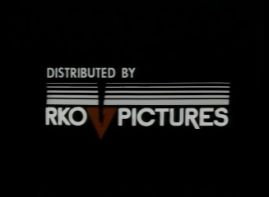 <iframe frameborder="0" height="204" src="http://wikifoundrytools.com/wiki/closinglogos/widget/unknown/fd4045fa841959298108bacf3976c738fca68daf" width="271"></iframe>
<iframe frameborder="0" height="204" src="http://wikifoundrytools.com/wiki/closinglogos/widget/unknown/fd4045fa841959298108bacf3976c738fca68daf" width="271"></iframe>
Nicknames: "80s Thunderbolt", "Cheesy Thunderbolt", Thunderbolt Triangle
Logo: On a plain black background, a segmented white-lined rectangle with a cut on the left side and the text "RKO PICTURES" below emerges from the top of the screen, and moves down and curves up as if a roller coaster, zooming up to the center of the screen. We also see a red variant of the thunderbolt from the closing 1929 RKO Radio Pictures logo flipping up and growing in size as it lands below the cut on the rectangle in between "RKO" and "PICTURES." The text "DISTRIBUTED BY" appears above the logo.
FX/SFX: The logo zooming and flipping effects.
Music/Sounds: A synthesized tune with rising air and a boom noise as the logo parts come together, followed by a gradual synthesized fade out.
Availability: Rare. This logo was only used as a distribution logo on television and did not appear on any of the studio's film output. Appeared on 1980s syndie prints of What Price Hollywood, None But the Lonely Heart, Westward Passage and Nocturne, among others; some of these prints also aired on TCM. Home media releases from RKO Home Video and The Nostalgia Merchant may include this logo at the end of such films like Isle of the Dead. Also appears on the 1986 VidAmerica VHS release of Suspicion and the 1990 Turner Home Entertainment VHS release of Bringing Up Baby (Turner actually reprinted some older RKO Home Video releases). It is unknown what Turner reprints or any Warner Home Video reprints of RKO films have this logo.
2nd Logo
(April 10, 1987-March 21, 1992)
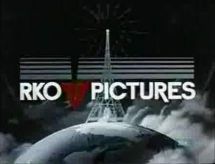 <a class="external" href="http://www.youtube.com/watch?v=LOHUIdvRZJM" rel="nofollow" target="_blank">
<a class="external" href="http://www.youtube.com/watch?v=LOHUIdvRZJM" rel="nofollow" target="_blank">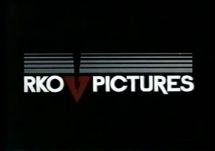 </a>
</a>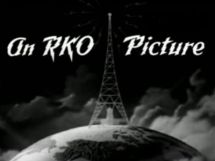
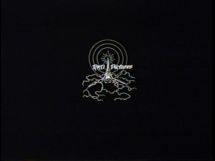
Nickname: "1980s Transmitter"
Logo:
FX/SFX: The rotating Earth globe, the lightning bolts, the sound waves and the zooming thunderbolt triangle.
Music/Sounds: A series of Morse code beeps. The closing variant is silent.
Availability: Uncommon. It appeared on some films that Paramount Pictures released from this time frame, including Campus Man, Hamburger Hill and Hot Pursuit.
3rd Logo
(October 23, 1992)
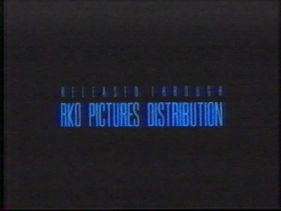 Logo: On a black background, the words "RELEASED THROUGH" appear on the top. Below is "RKO PICTURES DISTRIBUTION".
Logo: On a black background, the words "RELEASED THROUGH" appear on the top. Below is "RKO PICTURES DISTRIBUTION".
FX/SFX: None.
Music/Sounds: None.
Availability: Extremely rare. The only known movie to use this logo is Frozen Assets.
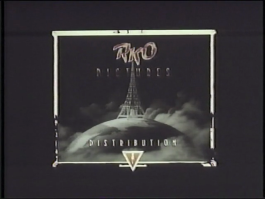 <iframe frameborder="0" height="204" src="http://wikifoundrytools.com/wiki/closinglogos/widget/unknown/5453e9674d924f84ba45ae54867768341e5d7fde" width="271"></iframe>
<iframe frameborder="0" height="204" src="http://wikifoundrytools.com/wiki/closinglogos/widget/unknown/5453e9674d924f84ba45ae54867768341e5d7fde" width="271"></iframe>
Logo: On a black background is a box with a white border with the thunderbolt triangle at the bottom. Inside the box is the famous radio tower on earth. On top the antenna "R", "K" and "O" appear one by one, in red and in its company font. Then "P I C T U R E S" flies in and rests at the bottom of "RKO". Then "DISTRIBUTION" appears at the bottom at the top of the thunderbolt triangle.
FX/SFX: The Earth and the company name appearing.
Music/Sounds: Along with the Morse code beeps, a drumbeat is heard when each letter of "RKO" appears.
Availability: Extremely rare. Only known to appear on the American release of The Elegant Criminal.
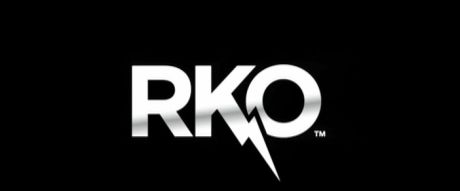 <iframe frameborder="0" height="190" src="http://wikifoundrytools.com/wiki/closinglogos/widget/genericvideo/465f0510c4cb416faafb73da131efa9de3f4c5d4" width="337"></iframe>
<iframe frameborder="0" height="190" src="http://wikifoundrytools.com/wiki/closinglogos/widget/genericvideo/465f0510c4cb416faafb73da131efa9de3f4c5d4" width="337"></iframe>
Nickname: "CGI Transmitter II"
Logo: We see the previous logo animating in reverse in black and white. As it zooms to the bright light, there is a thunderbolt that appears out of the light and it displays the letters "RKO" in silver lettering with a shine effect. The clouds later fade into a black background.
FX/SFX: The logo zooming into the light, "RKO" appearing.
Music/Sounds: Same as the last logo, but the Morse code sounds play earlier.
Availability: This logo was used in the 2009 version of the RKO's official website until the site was changed in early 2018. You can still see the logo using the Wayback Machine.
(March 24, 1929-1956)
<iframe frameborder="0" height="167" src="http://wikifoundrytools.com/wiki/closinglogos/widget/unknown/120c45c9f3d522455f5b9fbdb42923311f0860ce" width="222"></iframe><iframe frameborder="0" height="167" src="http://wikifoundrytools.com/wiki/closinglogos/widget/unknown/82568187728cd1d786d20a7eb14aaac2c873708e" width="222"></iframe><iframe frameborder="0" height="167" src="http://wikifoundrytools.com/wiki/closinglogos/widget/unknown/28c3f425db6126a486a777b46b5c8ad496e8d75a" width="222"></iframe><iframe frameborder="0" height="167" src="http://wikifoundrytools.com/wiki/closinglogos/widget/unknown/517a4139a499010a1870af76d5effa0ff26b8240" width="222"></iframe><iframe frameborder="0" height="167" src="http://wikifoundrytools.com/wiki/closinglogos/widget/unknown/2bc9c3c12da35de9d674951974fb0811a4abe1cf" width="222"></iframe>
Logo: In the end titles of a film, we see an equilateral triangle pointing down with a "Thunderbolt" drawn 3/4 through it. Above the logo is the text "Radio Pictures" (1929 to 1936) or "R K O Radio" with a line drawn over the triangle edge with the text "PICTURES" (1936 to 1956). The text "REG. US. PAT. OFF." is shown below.
Variants:
- The "Radio Pictures" variant had "THE END" displayed, which was wiped away to allow the Radio Pictures logo to be wiped in, which had a much scragglier thunderbolt design and a different font compared to the "R K O Radio" variant that followed.
- On films produced by Walt Disney Productions that RKO distributed, a color version of the logo would appear at the beginning of the film, on a title card in the style of the opening credits. Starting with Song of the South in 1946, the phrase "Distributed by RKO Radio Pictures, Inc." appears below the logo.This variant also appeared on the 1948 film Joan of Arc.
- Like the above-mentioned Walt Disney Productions films, films produced by Samuel Goldwyn Productions had this logo at the beginning of a film in the style of the opening credits.
- On Snow White and the Seven Dwarfs, the logo appears at the end of the film and is put on a jewel background, with the words "A WALT DISNEY FEATURE Production" overlapping it, and "IN TECHNICOLOR" below it.
- On Fantasia, the logo is put on the title screen of the film, and is silver.
- On a few Disney films, such as The Reluctant Dragon, Peter Pan, and Adventures in Music:Melody, the thunderbolt is mirrored horizontally.
FX/SFX: The fade in and fade out.
Music/Sounds: The closing theme of a film. On Disney films (except Fantasia and Snow White and the Seven Dwarfs), the opening theme of the movie plays.
Music/Sounds Variants:
- On the original release of Bambi, the opening to the song "Love is a Song" is heard, this was also seen on the 1997 laserdisc release, however, the logo is removed from most releases, although it can be heard playing underneath the shortened version of the 1985-2006 Walt Disney Pictures logo (on the 2005 Platinum DVD release) and the shortened version of the 2006-present Walt Disney Pictures logo (on the 2011 Diamond DVD release).
- On Peter Pan, the opening to the song "The Second Star to the Right" is heard.
- On Pinocchio, the opening to the song "When You Wish Upon a Star" is heard.
- On Cinderella, the opening to the song "Cinderella" is heard.
- On Alice in Wonderland, the opening to the song "Alice in Wonderland" is heard.
- On the Fantasia variant, the logo is silent.
Availability: Common. It's still saved on films produced by the company. Most Walt Disney Productions films had this logo plastered by the Buena Vista Pictures Distribution or the Walt Disney Pictures logo until the late 1990s (although some prints have the WDP logo playing before the RKO logo, examples being Peter Pan and Fun and Fancy Free), when it began to be restored (although some films, such as Bambi, usually have the logo removed as evidenced on the 2005 and 2011 Disney DVD releases of Bambi where it had a short version of the Walt Disney Pictures logo at the time plastered over with the fanfare playing underneath, however it appears on a laserdisc release according to YouTube user LogoLibraryInc). The variant seen on Samuel Goldwyn Productions films is often removed, although it may have been on 1980s and 1990s home media releases by Samuel Goldwyn Home Entertainment that were distributed by various companies. This logo also originally appeared on Song of the South, but the UK VHS release contains the Buena Vista logo (with the opening theme playing over), and the Japanese laserdisc has no logo. It may have appeared on the original releases of Saludos Amigos and So Dear To My Heart. The Fantasia variant is intact on the 2010 DVD release, but is not present on the 1990 VHS release.
--------------------------------------------------------------------------------------------------------------------
RKO Pictures
Background: In 1981, RKO General, under the General Tire and Rubber Company, began to reenter film production by co-producing several films with various studios (such as Avco Embassy Pictures Corporation, Universal Studios, 20th Century Fox Film Corporation and Paramount Pictures). Around 1985, General Tire's media holdings were reorganized to form GenCorp, with RKO General remaining as a subsidiary. A hostile takeover was attempted in 1987 on GenCorp and RKO Pictures was spun off and sold to Wesray Capital Corporation, who then spun off RKO Pictures in 1989. The studio was then purchased by actress Dina Merrill and her husband and film producer Ted Hartley to form RKO Pictures, LLC, who remains as the current owner of the studio.
1st Logo
(1983-1987)
Background: In 1981, RKO General, under the General Tire and Rubber Company, began to reenter film production by co-producing several films with various studios (such as Avco Embassy Pictures Corporation, Universal Studios, 20th Century Fox Film Corporation and Paramount Pictures). Around 1985, General Tire's media holdings were reorganized to form GenCorp, with RKO General remaining as a subsidiary. A hostile takeover was attempted in 1987 on GenCorp and RKO Pictures was spun off and sold to Wesray Capital Corporation, who then spun off RKO Pictures in 1989. The studio was then purchased by actress Dina Merrill and her husband and film producer Ted Hartley to form RKO Pictures, LLC, who remains as the current owner of the studio.
1st Logo
(1983-1987)
 <iframe frameborder="0" height="204" src="http://wikifoundrytools.com/wiki/closinglogos/widget/unknown/fd4045fa841959298108bacf3976c738fca68daf" width="271"></iframe>
<iframe frameborder="0" height="204" src="http://wikifoundrytools.com/wiki/closinglogos/widget/unknown/fd4045fa841959298108bacf3976c738fca68daf" width="271"></iframe>Nicknames: "80s Thunderbolt", "Cheesy Thunderbolt", Thunderbolt Triangle
Logo: On a plain black background, a segmented white-lined rectangle with a cut on the left side and the text "RKO PICTURES" below emerges from the top of the screen, and moves down and curves up as if a roller coaster, zooming up to the center of the screen. We also see a red variant of the thunderbolt from the closing 1929 RKO Radio Pictures logo flipping up and growing in size as it lands below the cut on the rectangle in between "RKO" and "PICTURES." The text "DISTRIBUTED BY" appears above the logo.
FX/SFX: The logo zooming and flipping effects.
Music/Sounds: A synthesized tune with rising air and a boom noise as the logo parts come together, followed by a gradual synthesized fade out.
Availability: Rare. This logo was only used as a distribution logo on television and did not appear on any of the studio's film output. Appeared on 1980s syndie prints of What Price Hollywood, None But the Lonely Heart, Westward Passage and Nocturne, among others; some of these prints also aired on TCM. Home media releases from RKO Home Video and The Nostalgia Merchant may include this logo at the end of such films like Isle of the Dead. Also appears on the 1986 VidAmerica VHS release of Suspicion and the 1990 Turner Home Entertainment VHS release of Bringing Up Baby (Turner actually reprinted some older RKO Home Video releases). It is unknown what Turner reprints or any Warner Home Video reprints of RKO films have this logo.
2nd Logo
(April 10, 1987-March 21, 1992)
 <a class="external" href="http://www.youtube.com/watch?v=LOHUIdvRZJM" rel="nofollow" target="_blank">
<a class="external" href="http://www.youtube.com/watch?v=LOHUIdvRZJM" rel="nofollow" target="_blank"> </a>
</a>

<iframe frameborder="0" height="167" src="http://wikifoundrytools.com/wiki/closinglogos/widget/unknown/20ac89a36ac72533d00833733d5fb5692313d9d5" width="296"></iframe>
Nickname: "1980s Transmitter"
Logo:
- Opening: The logo begins the same as in the first one. After a few seconds, a segmented white-lined rectangle with a cut on the left side and the text "RKO PICTURES" appearing on opposite sides of the red thunderbolt triangle design emerges from the transmitter tip, and moves downward, zooming towards the lower third of the screen, then the background fades to black.
- Closing: The closing logo of these movies is a still picture of the opening logo, with "An RKO Picture" in the 1929 "thunderbolt" font.
FX/SFX: The rotating Earth globe, the lightning bolts, the sound waves and the zooming thunderbolt triangle.
Music/Sounds: A series of Morse code beeps. The closing variant is silent.
Availability: Uncommon. It appeared on some films that Paramount Pictures released from this time frame, including Campus Man, Hamburger Hill and Hot Pursuit.
3rd Logo
(October 23, 1992)
 Logo: On a black background, the words "RELEASED THROUGH" appear on the top. Below is "RKO PICTURES DISTRIBUTION".
Logo: On a black background, the words "RELEASED THROUGH" appear on the top. Below is "RKO PICTURES DISTRIBUTION".FX/SFX: None.
Music/Sounds: None.
Availability: Extremely rare. The only known movie to use this logo is Frozen Assets.
4th Logo
(June 24, 1992)
(June 24, 1992)
 <iframe frameborder="0" height="204" src="http://wikifoundrytools.com/wiki/closinglogos/widget/unknown/5453e9674d924f84ba45ae54867768341e5d7fde" width="271"></iframe>
<iframe frameborder="0" height="204" src="http://wikifoundrytools.com/wiki/closinglogos/widget/unknown/5453e9674d924f84ba45ae54867768341e5d7fde" width="271"></iframe>Logo: On a black background is a box with a white border with the thunderbolt triangle at the bottom. Inside the box is the famous radio tower on earth. On top the antenna "R", "K" and "O" appear one by one, in red and in its company font. Then "P I C T U R E S" flies in and rests at the bottom of "RKO". Then "DISTRIBUTION" appears at the bottom at the top of the thunderbolt triangle.
FX/SFX: The Earth and the company name appearing.
Music/Sounds: Along with the Morse code beeps, a drumbeat is heard when each letter of "RKO" appears.
Availability: Extremely rare. Only known to appear on the American release of The Elegant Criminal.
5th Logo
(October 19, 1996- )
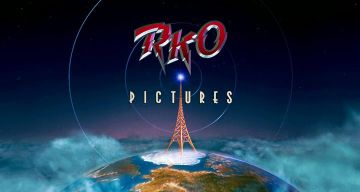 <iframe frameborder="0" height="204" src="http://wikifoundrytools.com/wiki/closinglogos/widget/unknown/3af137df75a55bd8219269183952fa309c2bd6c7" width="361"></iframe>
<iframe frameborder="0" height="204" src="http://wikifoundrytools.com/wiki/closinglogos/widget/unknown/3af137df75a55bd8219269183952fa309c2bd6c7" width="361"></iframe>
Logo: In this logo, the sky background and Earth globe look more realistic. A bright light is seen on the transmitter tip of the radio tower situated on top of the rotating globe as the picture zooms outward. The radio tower then sends out signals illustrated by sound waves coming from its transmitter. The text "RKO PICTURES" fades in on top of the transmitter. "RKO" appears in a red "thunderbolt" font while "PICTURES" sports a more '30s-ish typeface below that.
FX/SFX: The bright light and the sound waves are an improvement over the previous logo. This was done by Studio Productions (now known as "Flip Your Lid Animation").
Music/Sounds: A triumphant fanfare with Morse code beeps at the end. Sometimes, the opening theme is heard.
Availability: Uncommon. It can be found on films such as Mighty Joe Young, The Magnificent Ambersons, Gin Game, Are We Done Yet?, Beyond a Reasonable Doubt (2009 version), A Late Quartet and Barely Lethal.
6th Logo
(October 19, 1996- )
 <iframe frameborder="0" height="204" src="http://wikifoundrytools.com/wiki/closinglogos/widget/unknown/3af137df75a55bd8219269183952fa309c2bd6c7" width="361"></iframe>
<iframe frameborder="0" height="204" src="http://wikifoundrytools.com/wiki/closinglogos/widget/unknown/3af137df75a55bd8219269183952fa309c2bd6c7" width="361"></iframe>Nicknames: "1990s Transmitter", "CGI Transmitter"
Logo: In this logo, the sky background and Earth globe look more realistic. A bright light is seen on the transmitter tip of the radio tower situated on top of the rotating globe as the picture zooms outward. The radio tower then sends out signals illustrated by sound waves coming from its transmitter. The text "RKO PICTURES" fades in on top of the transmitter. "RKO" appears in a red "thunderbolt" font while "PICTURES" sports a more '30s-ish typeface below that.
FX/SFX: The bright light and the sound waves are an improvement over the previous logo. This was done by Studio Productions (now known as "Flip Your Lid Animation").
Music/Sounds: A triumphant fanfare with Morse code beeps at the end. Sometimes, the opening theme is heard.
Availability: Uncommon. It can be found on films such as Mighty Joe Young, The Magnificent Ambersons, Gin Game, Are We Done Yet?, Beyond a Reasonable Doubt (2009 version), A Late Quartet and Barely Lethal.
6th Logo
(2009- February? 2018)
 <iframe frameborder="0" height="190" src="http://wikifoundrytools.com/wiki/closinglogos/widget/genericvideo/465f0510c4cb416faafb73da131efa9de3f4c5d4" width="337"></iframe>
<iframe frameborder="0" height="190" src="http://wikifoundrytools.com/wiki/closinglogos/widget/genericvideo/465f0510c4cb416faafb73da131efa9de3f4c5d4" width="337"></iframe>Nickname: "CGI Transmitter II"
Logo: We see the previous logo animating in reverse in black and white. As it zooms to the bright light, there is a thunderbolt that appears out of the light and it displays the letters "RKO" in silver lettering with a shine effect. The clouds later fade into a black background.
FX/SFX: The logo zooming into the light, "RKO" appearing.
Music/Sounds: Same as the last logo, but the Morse code sounds play earlier.
Availability: This logo was used in the 2009 version of the RKO's official website until the site was changed in early 2018. You can still see the logo using the Wayback Machine.
